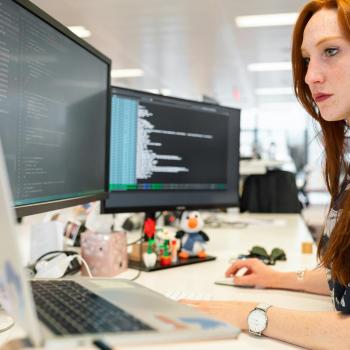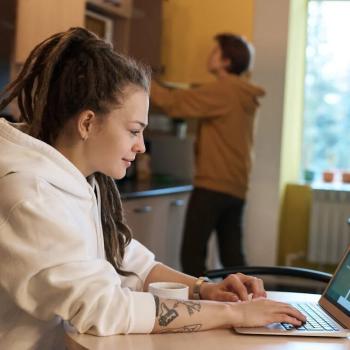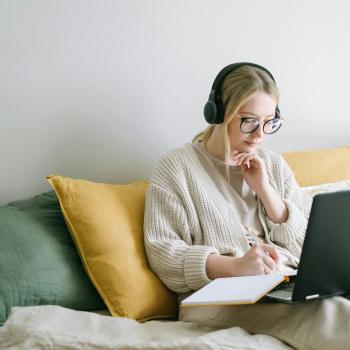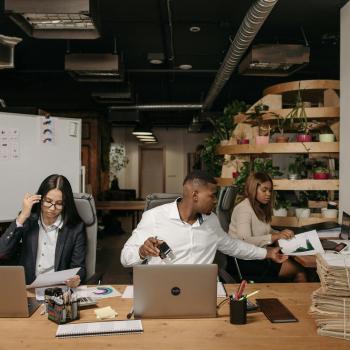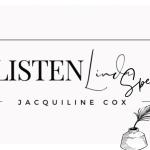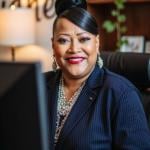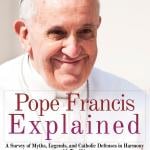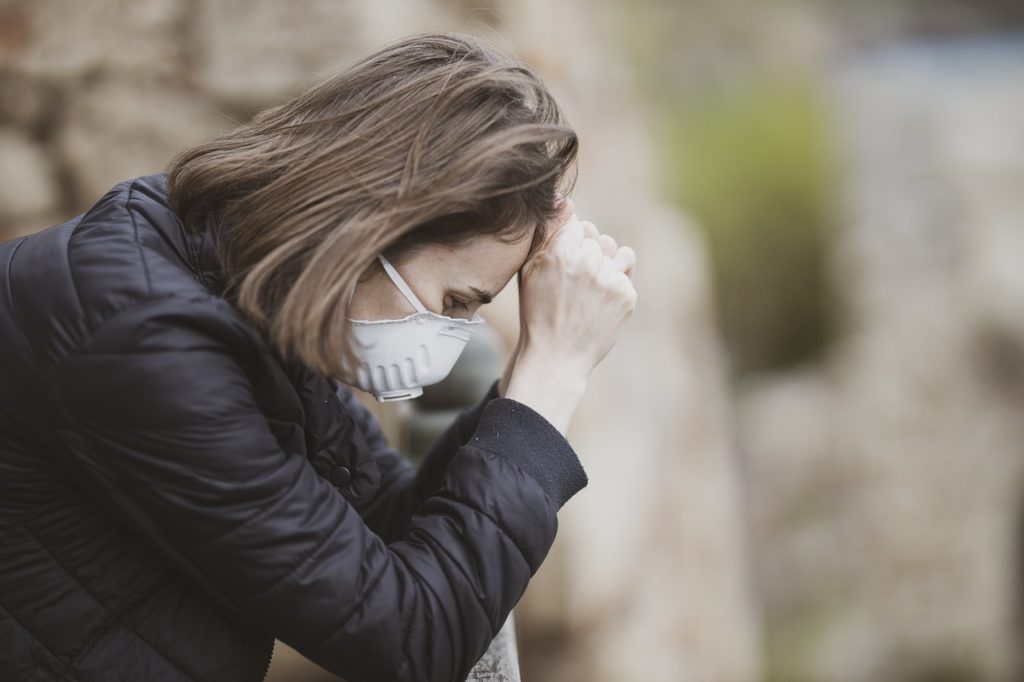
Do you find yourself increasingly upset whenever you take in news regarding COVID-19, especially the recent third wave? Do you often ask yourself — whenever you get a glimpse of your friends’ relatively productive lives through social media posts — if you’re the only one who isn’t flourishing throughout this pandemic?
Handle COVID Anxiety Immediately
You might have been tempted to minimize or ignore how you really feel, or perhaps you didn’t quite understand how anxious or stressed you’ve been all along. Nonetheless, take into consideration the impact on your overall wellness if you continue to sweep these problems under the rug. Note that your anxiety and stressors aren’t going to vanish by willing them away — similar to how COVID will not simply magically disappear. You need to avoid the lure of the normalcy bias or that tempting feeling that you can just fast-forward the difficult parts of this year, or that things will quickly return to exactly how they were pre-COVID. The normalcy bias is among over a hundred harmful judgment mistakes that scholars in cognitive neuroscience, psychology, and behavioral economics like myself call cognitive biases. They result from a combination of our evolutionary makeup and also particular ways that our brains are wired. Such mental blindspots impact all areas of our life, from health to politics and even shopping. Fortunately, recent research has shown effective and pragmatic strategies to defeat these dangerous judgment errors. To address stress and anxiety, we have to adjust to the long battle of dealing with COVID-19 as well as tackling issues now. There is simply no point in delaying this adjustment. Simply consider how your productivity, comfort, as well as individual and work relationships will get a boost when you opt to tackle the problem directly.Address Your Needs to Beat COVID Anxiety
Most probably, a great deal of the things that are making you anxious or giving you stress involve the uncertainty brought by the pandemic. You most likely feel like you have no control over your life. The vulnerability you feel might even lead you to make mountains out of molehills. There are things within your control, nonetheless. Securing these will likely give a sense of stability and comfort — and don’t we all yearn for these during such nerve-wracking times? You’re likely familiar with Abraham Maslow’s theory of human motivation and also the pyramid of needs based on his work. Maslow suggested that specific essential requirements need to be met so that people will remain motivated. Psychologist Scott Barry Kaufman refined Maslow’s theory with newer research, and his revised model demonstrates that human beings require the following to remain balanced and motivated.Safety
This pertains to physical safety. See to it that you and also the ones you love can remain sheltered in a safe place for months at a time if there are major COVID outbreaks in your area. You must be able to stay in this place keeping in mind the waves of infections and also limitations that we’ll all have to deal with as we wait for a vaccine. While it’s unlikely, it pays to plan for a realistic pessimistic circumstance. This would mean having 2 months’ worth of basic food and also cleansing materials, in addition to required medicines. To ensure a good supply, consider buying such goods in bulk from specialized online suppliers instead of clearing the racks in your local food store. This would be the more practical and responsible thing to do. Also keep in mind that numerous companies (most likely including your own, too) as well as organizations have moved to a remote work setup. You may need to telecommute for a while, possibly longer than you anticipated, depending on the business strategy your firm decides to embark on. This translates to more time spent inside your home, so make sure that it’s a place where you can work without obstacles.Connection to Others
Your relationship with your loved ones as well as your community is incredibly vital if you want to get rid of COVID stress and anxiety. There are several things you’ll need to do to maintain it. Initially, think of your immediate connections with household members. With these connections, it’s better to expect and address concerns in advance as opposed to having them explode later on. If you live with a romantic partner at home, you’ll need to figure out exactly how to engage in a healthy way given that you’re with each other all the time. The same applies for various other family members. You might also have children who are cooped up inside the house if they’re back from school or university. In that case, you’ll have to figure out ways to help them deal with lockdown fatigue. You’ll additionally need to correspond with their schools for updates on school work. These updates will help you get a better sense of how your children’s schooling should be addressed – one less thing to worry about. More consideration should be given towards dealing with older adults above 60 or anyone with health conditions in your home (including yourself if applicable). Because they are at higher risk of getting COVID, significant measures need to be taken to prevent them from getting ill. Remember to take more care than you usually would have before this pandemic, since over half of those who contract COVID manifest no or light symptoms. Second, think about your loved ones who don’t stay in your home. You and your romantic partner might not be living in the same house. Based on how vulnerable you and other household members might be to the virus, you might opt to have a socially distant kind of relationship or you might opt to take the risk of physical intimacy. No matter which option you decided to take, just ensure that you are making the choice consciously and not casually. Apply the same principle to your friendships. You will need to figure out ways to stay connected with every friend, since social distancing recommendations and preferences may vary. This means that if having a beer or lunch in person isn’t possible yet, you could choose to interact online and spend time virtually instead. Keep in mind that you might need to sustain these alternative ways of engagement for the next few months, maybe years. This also applies to your community activities, such as nonprofit activism, clubs, faith-based groups, and so on. You need to make an online routine in case social distancing restrictions are tightened again. Considering the ongoing waves of lockdowns and restrictions, I highly recommend figuring out what kind of arrangement works for you and your connections. The sooner you’re able to address this, the better for all involved. While different US states have varying guidelines, anything can change depending on the severity of COVID outbreaks. Keep in mind as well that maintaining strong connections will give you more stability and comfort during these difficult times. Having good relationships will allow you to handle COVID anxiety better.Self-Esteem
Finally, make sure to address and secure your self-esteem. This refers to your self-respect, self-confidence, and your sense of mastery over your fate. You can do this by planning how you want to live your life during and after this pandemic. Doing so will boost your sense of control and help you feel confident, which is a good approach when handling anxiety and stress. You should also explore other areas in your life where you can make improvements – even enhancements – during this period of limitations and restrictions. You could even pick up or enhance new skills. Staying mostly at home provides a great opportunity to learn how to cook those dishes you’ve wanted to try for the longest time, or play an instrument, or learn a new language. If you sync your efforts with signing up for an online hobbyist group, you’ll create even more meaningful connections. I’m sure you’ll agree that this is even better. Dealing with your most important needs is empowering and will assist you in developing a good sense of mastery over your current environment. If you do this intentionally and consistently, it provides a strong counterpoint to anxiety and stress during the pandemic and even after.Conclusion
We can’t forecast exactly how the COVID-19 pandemic will end and how much more of our personal and work lives will be disrupted along the way. That’s why it isn’t uncommon for us to experience stress and anxiety during this period. Nevertheless, while the uncertainty this thought brings can lead to different degrees of worry, there are things you can do to meet your fundamental needs. Being able to do so will free you from the discomfort of stress and anxiety.Key Takeaway
Deal with COVID anxiety and stress immediately by addressing your fundamental needs of safety, connection to others, and self-esteem…> Click to tweet
Questions to Consider (please share your answers below)
- Have you been feeling stressed or anxious during this pandemic, and do you now want to make a change for the better?
- Where might you do a better job of fighting COVID anxiety?
- Which next steps will you take based on reading this article?
Bio: An internationally-recognized thought leader known as the Disaster Avoidance Expert, Dr. Gleb Tsipursky is on a mission to protect leaders from dangerous judgment errors known as cognitive biases by developing the most effective decision-making strategies. A best-selling author, he is best known for Never Go With Your Gut: How Pioneering Leaders Make the Best Decisions and Avoid Business Disasters (Career Press, 2019), The Blindspots Between Us: How to Overcome Unconscious Cognitive Bias and Build Better Relationships (New Harbinger, 2020), and Resilience: Adapt and Plan for the New Abnormal of the COVID-19 Coronavirus Pandemic (Changemakers Books, 2020). He published over 550 articles and gave more than 450 interviews to prominent venues such as Inc. Magazine, Entrepreneur, CBS News, Time, Business Insider, Government Executive, The Chronicle of Philanthropy, Fast Company, and elsewhere. His expertise comes from over 20 years of consulting, coaching, and speaking and training as the CEO of Disaster Avoidance Experts. It also stems from over 15 years in academia as a behavioral economist and cognitive neuroscientist. Contact him at Gleb[at]DisasterAvoidanceExperts[dot]com, Twitter @gleb_tsipursky, Instagram @dr_gleb_tsipursky, LinkedIn, and register for his free Wise Decision Maker Course.









